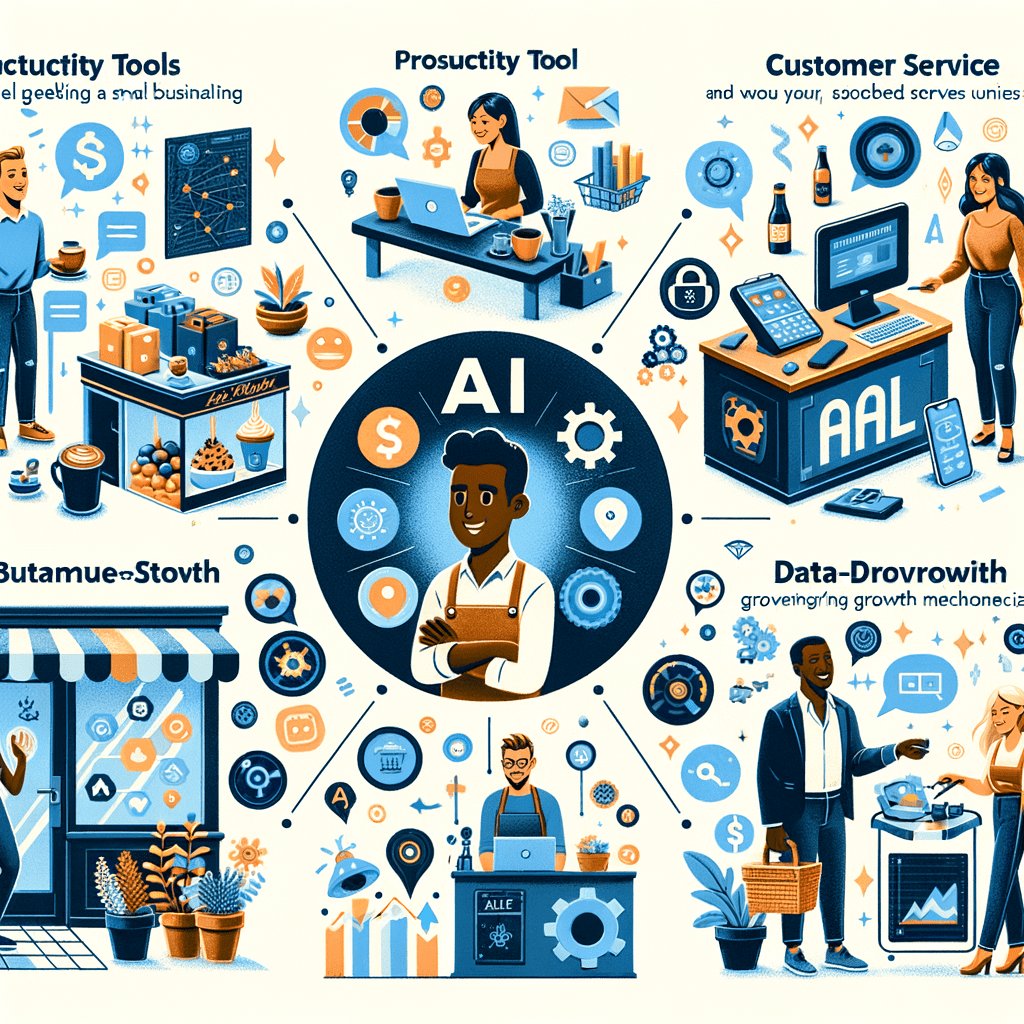Running a small business is tough. There’s always something that needs attention: products, people, marketing, bookkeeping—the list never ends. But what if there was a way to tackle these pain points more efficiently? That’s where booking AI services for small businesses comes into play. Artificial intelligence offers practical tools to boost almost every aspect of your operations, often for free or at a reasonable price.
How AI Can Revolutionize Your Small Business
AI might seem complicated, but it’s a set of tools that can handle tasks like generating social media content and chatting with website visitors. It also offers personalized financial reports and improves customer service through natural language processing.
PwC found that AI-exposed industries have already experienced a five-fold increase in productivity. This means small businesses can streamline operations and free up valuable time for strategic tasks. This provides an AI advantage, allowing you to stay competitive without depleting your budget.
Boosting Sales and Marketing with AI
Think of AI as your always-on marketing team. Tools like the AI chatbot ChatGPT can engage website visitors, answer questions, and nudge leads down your sales funnel.
ChatGPT can even gather data from interactions, identifying needs and predicting desired products. It can even personalize product recommendations and help you create an essential guide.
Want to improve your revenue insights? Check out these revenue forecasting best practices for businesses of all sizes.
Need visuals? DALL·E 2 is a cloud-based art generator for eye-catching content. AI design tools can even create custom templates for reports and presentations.
MarketsandMarkets predicted the machine learning market would grow to billions. A Forbes report revealed that AI is an increasingly important product feature, especially among European startups.
Want to boost your business’s visibility, especially in the USA? I recommend these SEO strategies. Consider our free ebook offer for small business marketing help and customer support.
Supercharging Customer Support
Statista reports nearly half of US businesses use AI chatbots. These provide 24/7 customer support, improving customer satisfaction. Your staff can then tackle complex issues. Plus, AI easily analyzes data, delivering financial reports for optimizing resources.
Streamlining Operations and Finances
AI streamlines back-office work. Zoho Books and its Zia AI handle bookkeeping and offer cash flow insights.
I found Zoho easy to use, which freed my team for other projects. Automating operations improves multiple business aspects, giving you the skills to leverage AI in your small business.
Managed IT services save money and reduce stress. Read about the key benefits for small businesses. Terms apply for our ebook offer redeemable by clicking ‘sign up’ below for small business owners.
Book AI Services for Small Businesses: A Practical Approach
Ready to incorporate AI? Start with one AI-based tool. Implement simple systems as you grow comfortable. Booking AI services makes this possible in multiple ways.
Here’s a table of resources to begin booking AI services:
| AI Tool | Description | Benefits |
|---|---|---|
| ChatGPT | AI chatbot | 24/7 customer interaction, lead generation |
| DALL·E 2 | Cloud-based art generator | Easy visual content creation |
| Zoho Books | AI-powered accounting software | Automated bookkeeping, financial reports |
FAQs about Book AI services for small businesses
Is it illegal to sell a book written by AI?
Copyright law protects works created by humans. As of 2024, AI-generated content is not eligible for copyright. This has created significant debate surrounding its ownership, so proceed with caution.
You can still use this type of content creation for social media content, mailing list today signups, and in products if platform rules allow.
How can AI be used for small businesses?
AI automates various business tasks, from customer service and data analysis to marketing and financial reporting. Its applications also cover operations, HR, IT security, product R&D, talent management, and sales.
It can even automate tasks to improve customer service in real-time while giving financial incentives, like discounts or free shipping.
Can AI do bookkeeping?
Yes, AI-powered accounting software, like Zoho Books, automates data entry and financial reporting. This saves time and clarifies finances for business owners.
Is there an AI that helps find books?
AI recommendation engines are common at online booksellers. These tools recommend books based on user interests and reading history, which could also include weekly bestsellers, and New York Times® Bestsellers. Some popular categories could include politics, romance, and science fiction.
Incorporating AI: The Way Forward for Small Businesses
AI is transforming how we live and do business. Booking AI services for small businesses helps them operate more smoothly, connect better with customers, and even scale their revenues.
With accessible options that don’t require technical expertise, there’s no reason to wait. Explore how natural language processing can automate tasks and help small businesses and even companies scale, giving you peace of mind and financial insights while avoiding publishing complexities. Sign up to our mailing list for our essential guide ebook and free plan, or find our free ebook on Simon & Schuster’s ebook fulfillment page.






